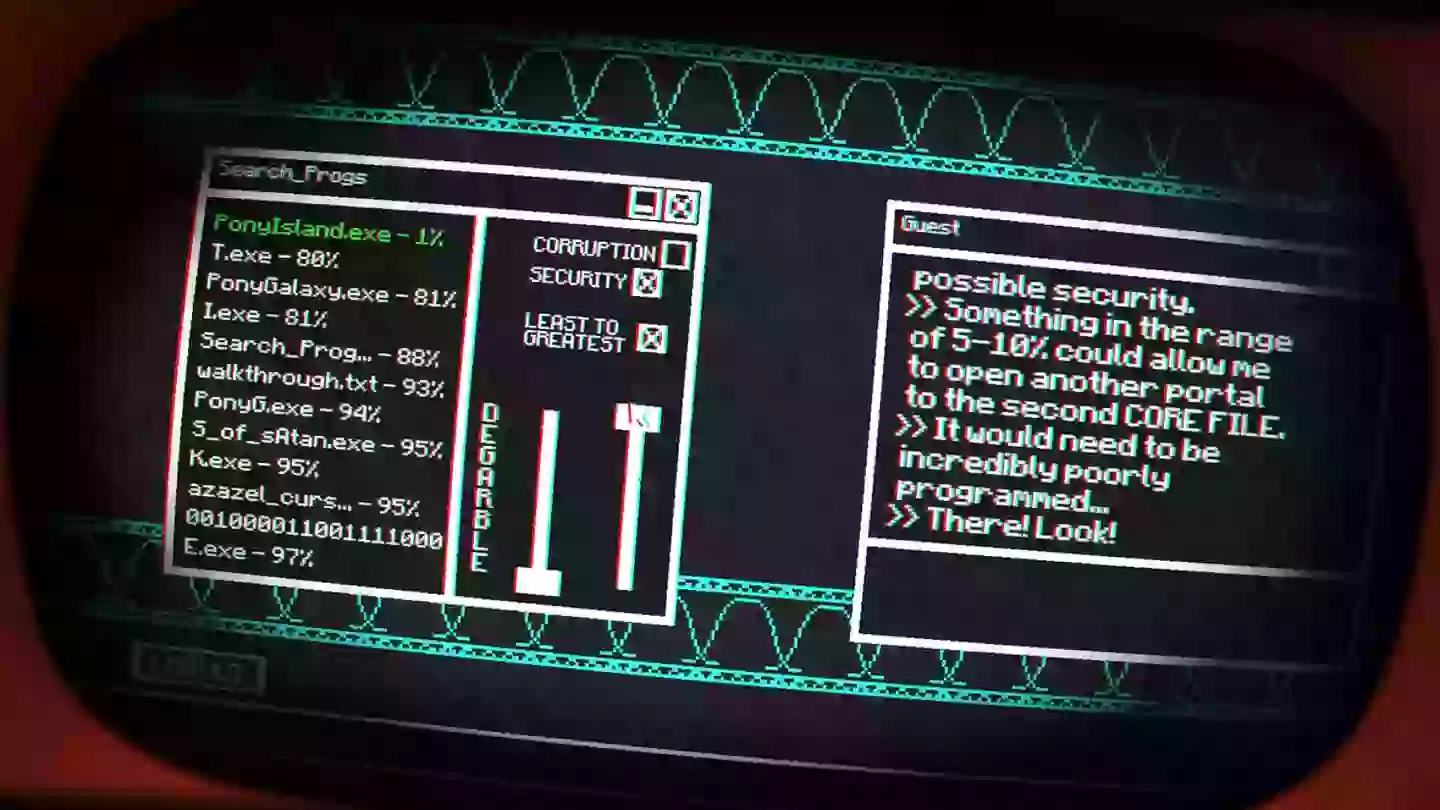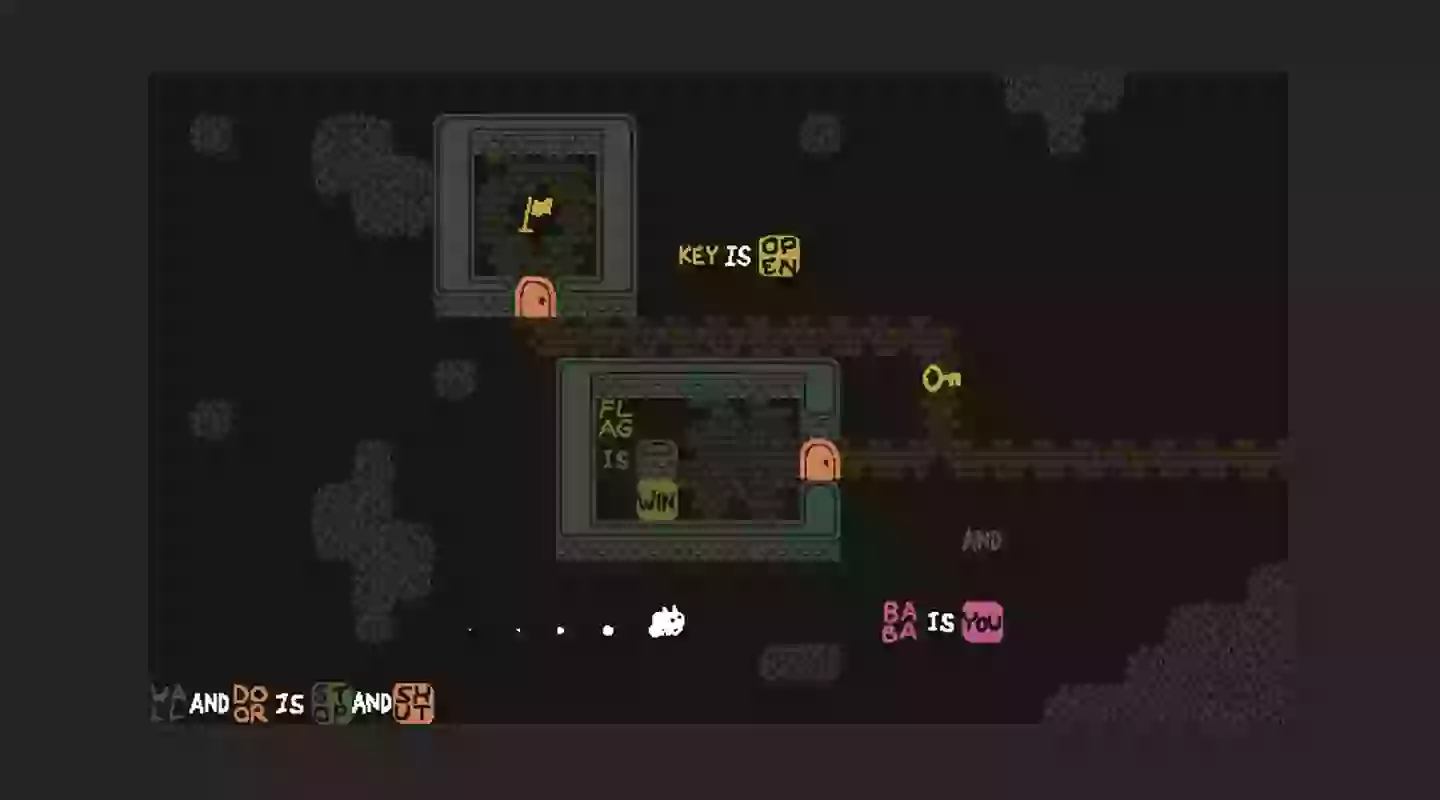
There is such a plethora of games and gaming genres out there that there is something for everyone's taste. However, there is a kind of eclectic palate which is almost impossible to cater for: the taste for things not yet known, a flavour still undiscovered. We can all say we love first-person shooters, or puzzle games, or open-world RPGs. What is much harder to describe is the desire for something you haven't yet seen; a shock or surprise which brings about delight.
I'm not talking about the invention of a whole genre per se. You've probably seen a handful in your lifetime alone. For the zoomers, that's Soulsbornes; millennials remember the rise of the Metroidvania; and if you are lucky (or, indeed, old) enough, you may have been around for the birth of roguelikes. Yes, very occasionally a game stands out enough that a whole genre is then named after them. What about the few that exist snuggly within a pre-existing genre, but then blow the box wide open on what that genre is exactly meant to be.
If you haven't heard of the twists in Doki Doki Literature Club, it's one of the all-time-best fourth-wall breakers...
Challenging the status quo is never an easy thing. When you tell others you want to try something new, the risk is always there that it could blow up in your face. Yet back in the 1990s, Japanese developers were frequently allowed to do so, given that they had shipped a commercially viable title first. There was often only scope for this creativity once you had proven your worth.
Advert
We saw it when Akitoshi Kawazu moved Romancing SaGa away from the Final Fantasy series in 1992, giving the player eight playable protagonists, an open world, and scaling difficulty. We saw it when the safety of Mother allowed creator Shigesato Ito to launch EarthBound - or Mother 2 in Japan - right off the zany deep end. We saw it when following the release of Final Fantasy Tactics, Yasumi Matsuno was allowed to release his simultaneously action- and turn-based RPG Vagrant Story.

These actions began tentatively. One of the first examples can be traced back to infamous developer Hideo Kojima, and the Psycho Mantis encounter from Metal Gear Solid, where the enemy in question makes the player’s controller vibrate and reads their memory card, speaking less to Snake and more to whoever was controlling them. Later in the same series, Kojima again showed he liked to think outside the box. Facing senior sniper The End in Metal Gear Solid 3: Snake Eater, you can take him down one on one, or leave the game for eight days, return to your save, and he’ll have died of old age.

Advert
Another series born out of Japan, based around the notion of subverting expectations, is Danganronpa. The murder mystery game where characters must kill each other to survive can only fool you in so many ways, before you are onto its tricks. So for the final entry, Danganronpa V3, series creator Kazutaka Kodaka upped the ante completely by politely pointing out that the reason all these characters are dying the most horrific deaths is because you, the player, keep on playing.
The wave of creativity brought over from Japan eventually started to wash up against Western shores in the 2010s. However, big-budget studios weren't willing to take the leap just yet. Those around at the time may remember that Bioshock Infinite was printed with a double-sided cover. The reason being that despite believing in Ken Levine's vision for the game, marketing executives still thought that showing off a grizzled white guy with a gun was the better way to sell the game, instead of the alternative which featured art for the robotic Songbird character.

While games like NieR, Bioshock Infinite, and Valve's Portal had begun to push the boundaries of what a game should look like, they weren't all the way there quite yet. What they did pave the way for was independent teams, such as the one made up of Davey Wreden and William Pugh which went out and developed completely new concepts like The Stanley Parable. In making the game, the two answered the question: "What happens if the player chooses what to do, rather than the game telling them?"
Advert
Since The Stanley Parable's release in 2011, almost every year since something has come out, often from a solo developer, with a premise equally as mind bending, which goes on to be critically acclaimed. Toby Fox's Undertale makes us question why you should have to kill characters in order to become better in an RPG. Dan Salvato's Doki Doki Literature Club forces you to examine if you can have real friendships even with fictional characters. Arvi Teikari makes you question what is and what isn't even part of the game in Baba Is You.

The freedom solo developers and smaller teams have in creating their visions exactly as they want, with no-one there to reject the wildest ideas, is an incredibly powerful thing. It has led to the creation of games like Frog Fractions and Pony Island, which go so far off the deep end that even knowing they go off the deep end spoils part of their charm. These games are all one-time thought experiments - and now they are done, out and have been played, the same idea can never have the same effect on gamers again.
Much like the games mentioned within this article, the true point of this history is a little mysterious. Reading in the lines, you can pick out a ready-made selection of games which will challenge you to think differently, and to move not with the direction of convention but with the creativity of mavericks pushing at the extremities of our understanding of play. If you go in with no preconceptions of what you know a game to be, you will understand them better. They are all games which play better with minds completely open.
Advert
If a tree falls in a forest and no one is around to hear it, does it make a sound? If a game brings something completely new to the table and nobody plays it, has the idea already been done? For every designer’s weird little thought experiment you find and purchase and play, you tell some other developer that their strange little idea might just be worth making. Buy the games that make you think, and spin the cogs in other minds too.
Topics: Bioshock, Daniel Mullins Games, Konami, Square Enix, Indie Games, Opinion